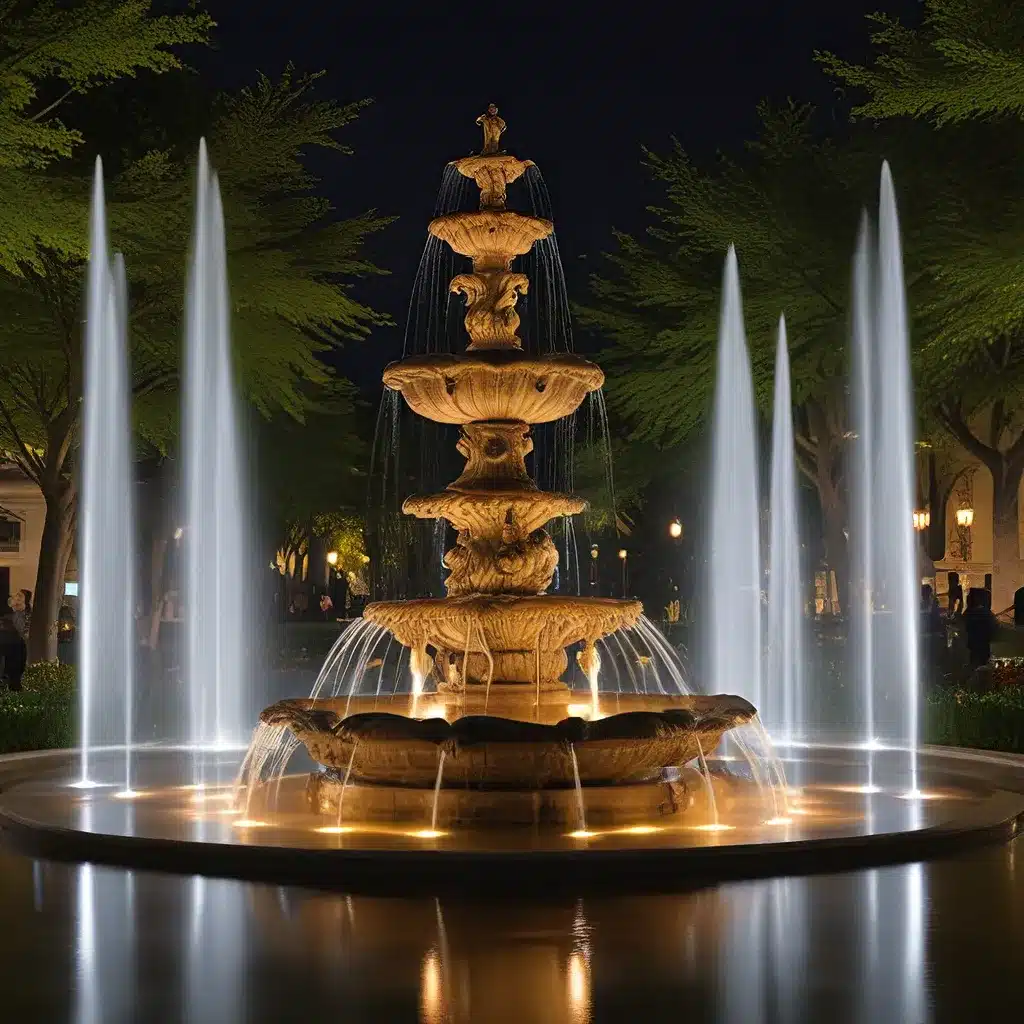
Fountain Design Essentials – Welcome to Fountain Lights
Fountain Design Essentials – Welcome to Fountain Lights

As an engineer, I’ve always been fascinated by the intricate workings of valve nozzles. These little marvels of engineering have a way of transforming ordinary sprays into something extraordinary. From their efficiency and versatility in spray patterns to their adjustable flow rates and enhanced control, valve nozzles truly stand out from other spray types. In this article, we’ll delve into what makes valve nozzles so unique and why they are the go-to choice for precision and reliability in various industries.
Valve nozzles offer a higher level of efficiency and precision compared to other spray types, thanks to their ability to deliver a precise and controlled amount of liquid or gas. This improved atomization ensures that the liquid or gas is broken down into smaller droplets or particles, resulting in a more uniform and even distribution. As a result, valve nozzles can provide increased coverage over a wider area, making them ideal for applications that require thorough and consistent spraying. The precision of valve nozzles allows for targeted and accurate delivery of the liquid or gas, minimizing waste and maximizing effectiveness. This level of efficiency and precision makes valve nozzles a preferred choice in industries such as agriculture, manufacturing, and automotive where precise and controlled spraying is essential for optimal results.
When it comes to spray patterns, the versatility of valve nozzles becomes apparent. Valve nozzles are known for their ability to produce a wide range of spray patterns, making them highly customizable for specific applications. This versatility is achieved through the design and engineering of the nozzle, allowing for adjustments in both the shape and direction of the spray. By fine-tuning these parameters, users can optimize spray coverage, ensuring that the desired area is evenly covered. Whether it’s a narrow jet for precise targeting or a wide cone for broader coverage, valve nozzles offer the flexibility needed to meet the requirements of various spraying tasks. This level of customization and spray coverage optimization sets valve nozzles apart from other spray types and makes them a preferred choice for many industries.
One notable feature of valve nozzles is their ability to adjust flow rates. This flow rate customization allows users to precisely control the amount of liquid being sprayed, ensuring optimal spray consistency. By adjusting the flow rate, users can tailor the spray output to meet their specific needs, whether it be for delicate applications that require a fine mist or for more robust applications that require a heavier spray. This level of control is crucial in industries such as agriculture, where different crops may require different amounts of liquid for effective coverage. The ability to adjust flow rates also enables users to optimize the performance and efficiency of their spraying equipment, minimizing waste and ensuring that the right amount of liquid is applied to the target surface.
To further enhance spray control, I can adjust the nozzle to achieve a more precise and targeted application of liquid. By adjusting the nozzle, I can improve atomization, resulting in smaller droplets that have a greater surface area, allowing for better coverage. The improved atomization leads to a more effective distribution of the liquid, ensuring consistent coverage across the desired area. This level of control is essential in applications where accuracy is paramount, such as in agriculture or industrial processes. The ability to adjust the nozzle allows for customization based on specific requirements, ensuring optimal performance. With enhanced spray control, the nozzle becomes a powerful tool in achieving desired outcomes, providing efficient and effective application of liquids.
A major advantage of valve nozzles is their ability to minimize downtime and maintenance. This is achieved through their design, which helps reduce clogging and improves overall performance. Valve nozzles are specifically designed to prevent particles and debris from entering the nozzle, thereby reducing the risk of clogging. This means that operators can spend less time on maintenance tasks such as nozzle cleaning and replacement. Additionally, the improved performance of valve nozzles allows for a more efficient and effective spray pattern, reducing the need for adjustments or recalibration. By minimizing downtime and maintenance, valve nozzles contribute to increased productivity and cost savings for the user.
Valve nozzles are compatible with a wide range of spraying solutions. This compatibility is crucial for ensuring that the nozzle effectively delivers the desired spray solution. Here are four important factors to consider when assessing the compatibility of valve nozzles with different spraying solutions:
Considering these factors, valve nozzles offer compatibility with different spraying solutions, providing reliable and effective spray application in various industries and applications.
Considering the factors mentioned earlier, cost-effectiveness and longevity are key considerations when evaluating valve nozzle compatibility with different spraying solutions. In terms of cost effectiveness, valve nozzles are often a more economical choice compared to other types of nozzles. Their design allows for efficient use of spraying solutions, reducing waste and saving money in the long run. Additionally, valve nozzles are known for their durability. They are typically made from high-quality materials that can withstand harsh spraying conditions and frequent use. This means that valve nozzles have a longer lifespan compared to other types of nozzles, resulting in reduced replacement and maintenance costs. When it comes to cost-effectiveness and longevity, valve nozzles prove to be a reliable and efficient choice for various spraying applications.
Share to :
Subscribe to our newsletter for the latest in fountain design, innovative lighting ideas, and exclusive tips straight to your inbox. Join the community shaping the future of water features.

Rapid delivery to your doorstep.

Excellence in every product.

Great value for your investment.

Assistance at any hour.
Fountain Lights — Illuminating creativity in every splash!
Copyright © 2023. All Right Reserved